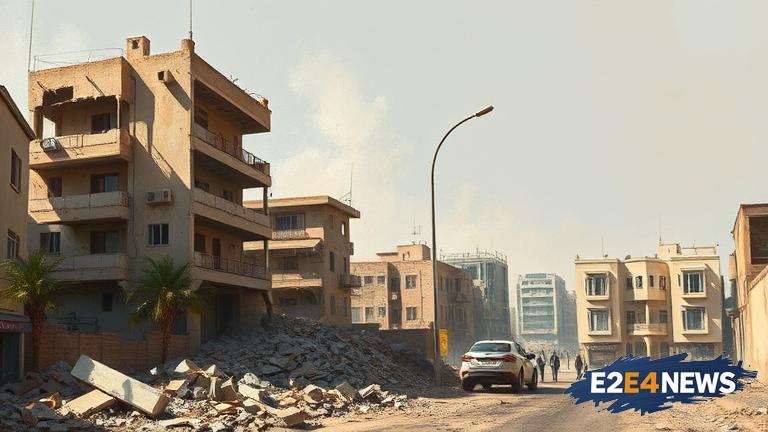The Beirut blast, which occurred on August 4, 2020, was one of the largest non-nuclear explosions in history, killing over 200 people and injuring thousands more. The blast was caused by the detonation of a large quantity of ammonium nitrate that had been stored at the port for years. Five years after the disaster, the victims and their families are still struggling to rebuild their lives. Many are still waiting for compensation and justice, but the Lebanese government has been slow to respond. The government has established a commission to investigate the blast, but it has been criticized for being ineffective and biased. The investigation has been plagued by delays and lack of transparency, leading to widespread frustration among the victims and their families. The blast has also had a significant impact on the Lebanese economy, which was already struggling before the disaster. The port of Beirut was a major hub for trade and commerce, and the blast has disrupted the flow of goods and services. The Lebanese government has estimated that the blast caused over $15 billion in damages, making it one of the costliest disasters in history. Despite the challenges, there are efforts underway to rebuild and restore the port and surrounding areas. The Lebanese government has announced plans to rebuild the port and create a new commercial hub, but the project has been slow to get off the ground. The international community has also pledged support for the rebuilding efforts, with countries such as France and the United States providing financial and technical assistance. However, the rebuilding process has been hindered by corruption and bureaucratic red tape. Many of the victims and their families have also been struggling to access basic services such as healthcare and education. The blast has also had a significant impact on the mental health of the victims and their families, with many experiencing anxiety, depression, and post-traumatic stress disorder. The Lebanese government has established a number of programs to provide support and counseling to those affected, but more needs to be done to address the long-term psychological impact of the disaster. In addition to the physical and emotional toll, the blast has also had a significant impact on the social fabric of the community. Many of the victims and their families have been forced to relocate, leading to a breakdown in social networks and community cohesion. The blast has also highlighted the need for greater accountability and transparency in government, with many calling for those responsible to be held accountable. The Lebanese government has faced widespread criticism for its handling of the disaster, with many accusing it of corruption and incompetence. The international community has also called for greater accountability, with the United Nations and other organizations urging the Lebanese government to take action to address the root causes of the disaster. Despite the challenges, there are signs of hope and resilience in the community. Many of the victims and their families are working together to rebuild and restore their lives, and there are efforts underway to create a memorial to honor the victims of the blast. The blast has also sparked a wider conversation about the need for greater safety and security measures in the handling and storage of hazardous materials. The international community has called for greater regulation and oversight, and there are efforts underway to develop new standards and guidelines for the safe handling and storage of ammonium nitrate and other hazardous materials. In conclusion, the Beirut blast was a devastating disaster that has had a profound impact on the lives of thousands of people. Five years after the blast, the victims and their families are still struggling to rebuild and recover, and there is a need for greater accountability and transparency in government. The international community must continue to provide support and assistance to those affected, and there must be a greater effort to address the root causes of the disaster and prevent similar tragedies from occurring in the future.





